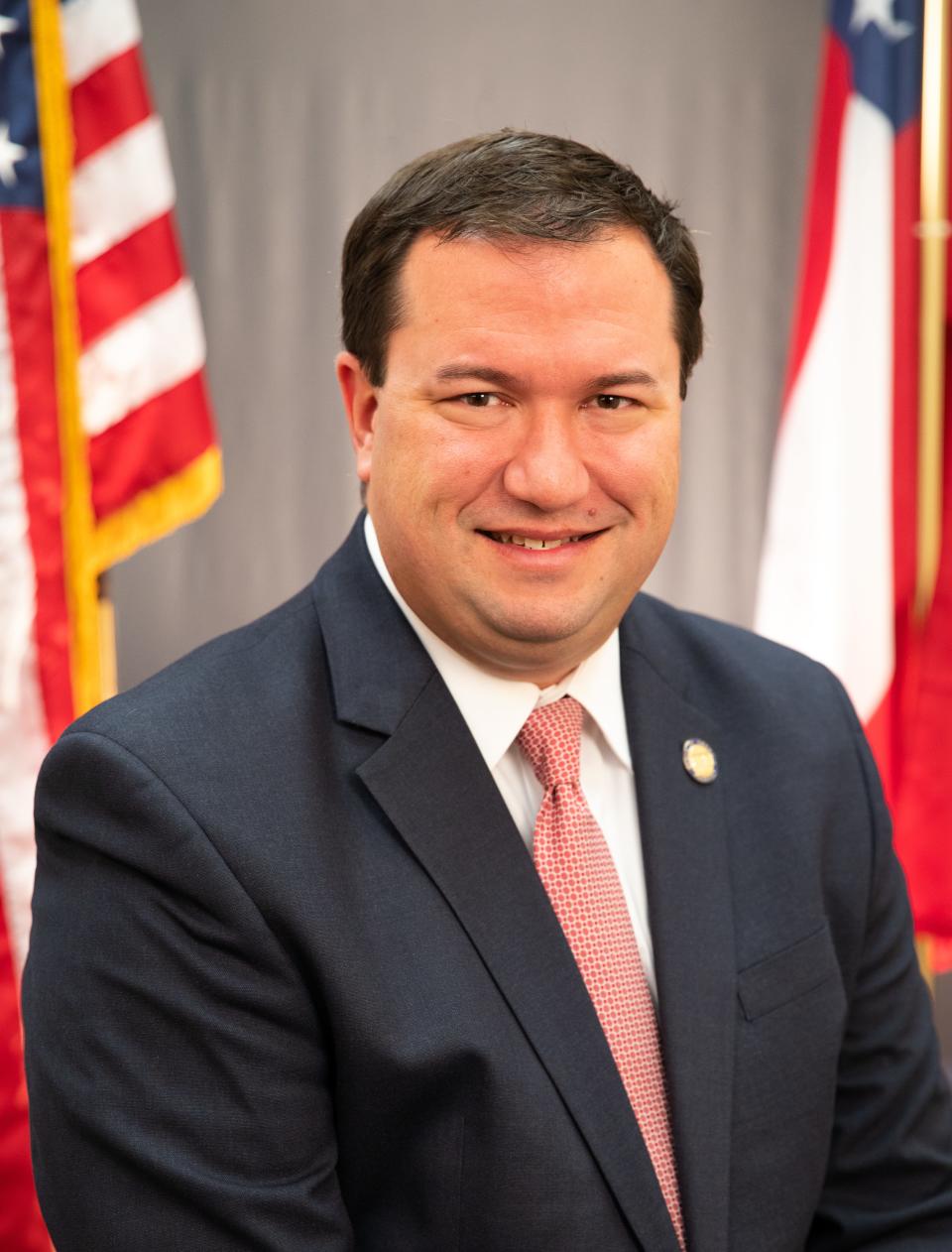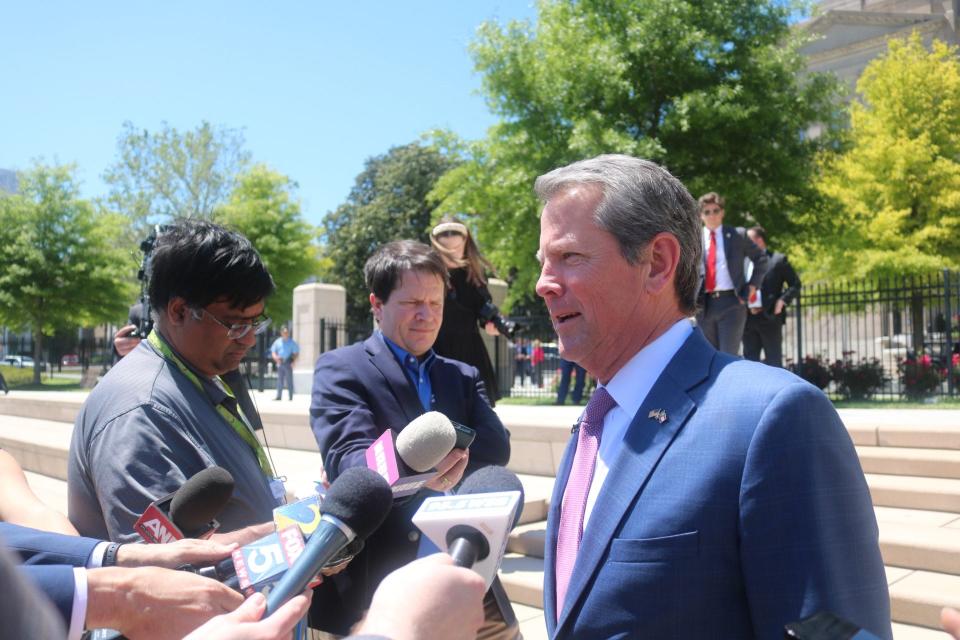Georgia governor signs controversial bill restricting children's access to the internet

- Oops!Something went wrong.Please try again later.
A controversial bill that would impose new restrictions on minors’ internet use was signed into law by Georgia Gov. Brian Kemp on Tuesday, unleashing concerns about ensuring children’s safety online while protecting students’ right to freedom of expression.
Introduced by state Sen. Jason Anavitarte (R-Dallas), the bill mirrors legislation passed in states like Louisiana, Arkansas, Texas and Utah that would require parental consent before allowing minors to create social media accounts. It also echoes a Texas law that would mandate age verification on pornography sites by requiring users to upload a government-issued photo ID before allowing them to view adult content. Any sites that do not enforce these rules would receive a $10,000 fine for each child who accesses content deemed “harmful to minors.”

Proponents of the bill say that it will protect children’s mental health by reducing access to social media platforms and imposing greater restrictions on the kinds of content minors can view.
Georgia was among a coalition of 33 states that filed a lawsuit against Meta, the parent company of Facebook and Instagram, for creating features it claims were deliberately designed to be addictive to children.
More: Donald Trump trial live updates: David Pecker on National Enquirer killing stories
“As social media has taken on more and more room in our young people’s lives, we have seen increases in mental health struggles and other negative behaviors and attitudes,” Kemp said at the bill signing ceremony in Atlanta. “We cannot continue to sit by and do nothing as young Georgians develop addictions and disorders, and suffer at the hands of online antagonists. I’m proud to sign this bill and put Georgians — children — first above all else.”
However, opponents have raised concerns about the bill’s efficacy, arguing that the state Legislature is violating students’ First Amendment rights and raising privacy concerns for all Georgia residents. Bans on social media usage in schools will extend to all electronics connected to school Wi-Fi networks, preventing teachers from incorporating tools like educational YouTube videos into their lessons.
More: Eighteen states and D.C. file amicus brief opposing Raffensperger voting rights appeal
Mandating that websites collect and store personal information also raises a slew of safety and privacy concerns, particularly in the event of a hack or data breach. The law could also effectively restrict access to adult content for Georgia residents regardless of age. Online pornography website Pornhub currently restricts access from users in seven states (Arkansas, Louisiana, Mississippi, Montana, North Carolina, Texas, Utah and Virginia) due to age verification laws.
A federal judge has already blocked the Arkansas law, citing concerns over its effectiveness and constitutionality. Whether the bill will be challenged or overturned in Georgia remains to be seen, but Kemp stated that he was not worried about the bill’s chances in court.

“If we were concerned about all the legal challenges that we may get this session, we probably wouldn’t have passed anything,” Kemp said. “I’m not too worried about that. I think most people want us taking common-sense actions to protect our children, especially from bad actors, when it comes to access to social media and what they’re getting off of their phones or computers now, and I think parents in the state want us to do that as well.”
The ACLU of Georgia and Georgia First Amendment Foundation have condemned the legislation, and NetChoice, a trade association promoting free enterprise and online expression, condemned its passage.
“[This bill] breaches Georgians’ privacy, endangers security, violates constitutional rights, and creates a one-size-fits-all ‘solution’ that erases parents,” NetChoice Vice President Carl Szabo said in a statement. “It’s unfortunate to see Georgia implement a similar, failed idea as some other states nationwide.
States like Ohio have already unsuccessfully tried to enact similar approaches, and various courts have echoed concerns when halting these laws. There are better ways to protect Georgians, their families and their data online without infringing on their freedoms or jeopardizing their safety and security.”
The law is scheduled to go into effect on July 1, 2025.
This article originally appeared on Savannah Morning News: Georgia governor signs bill limiting kids' access to the internet

